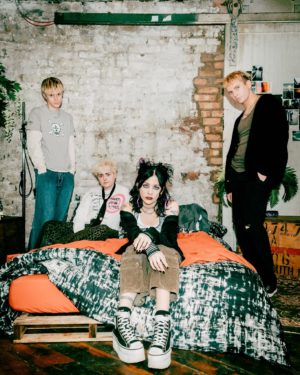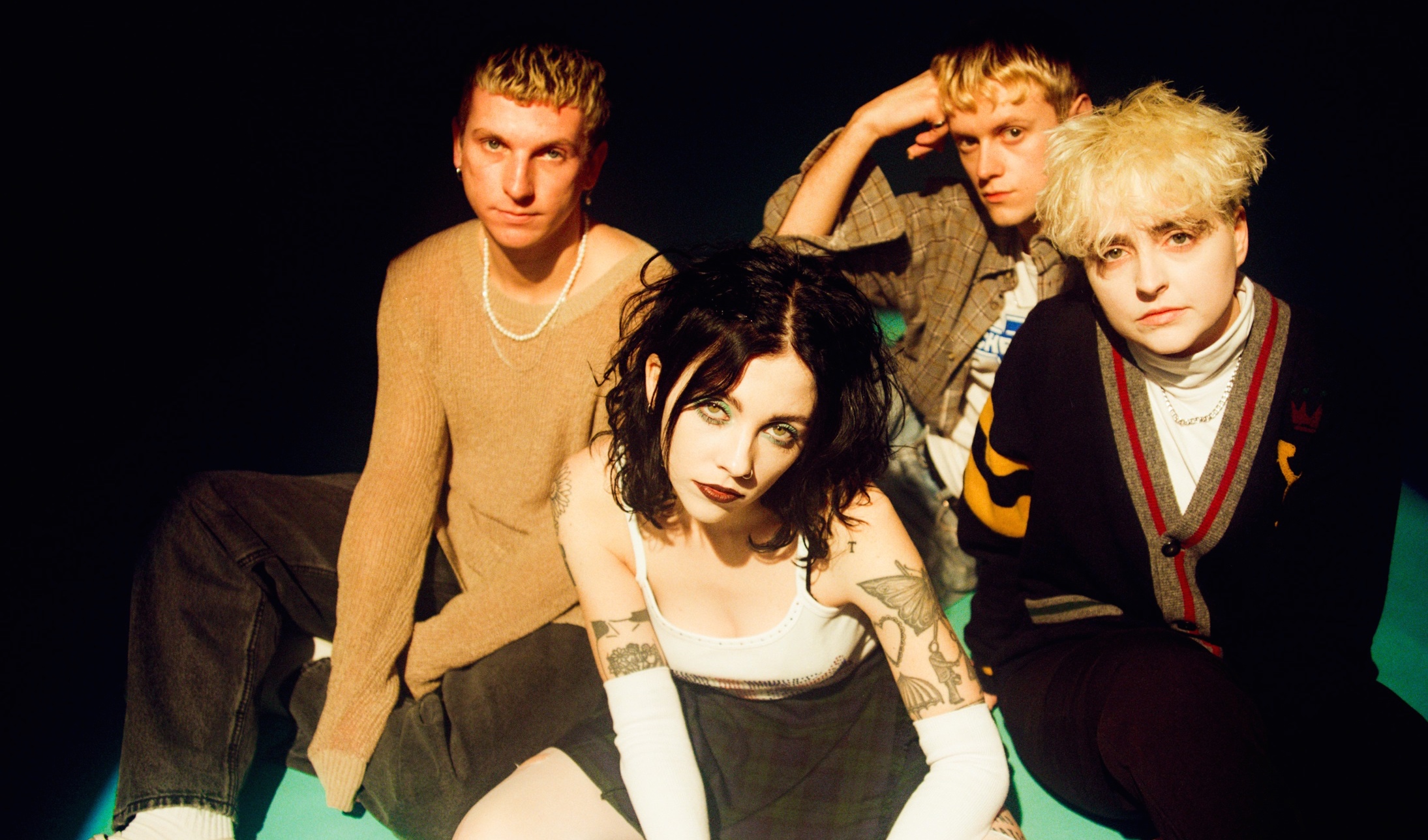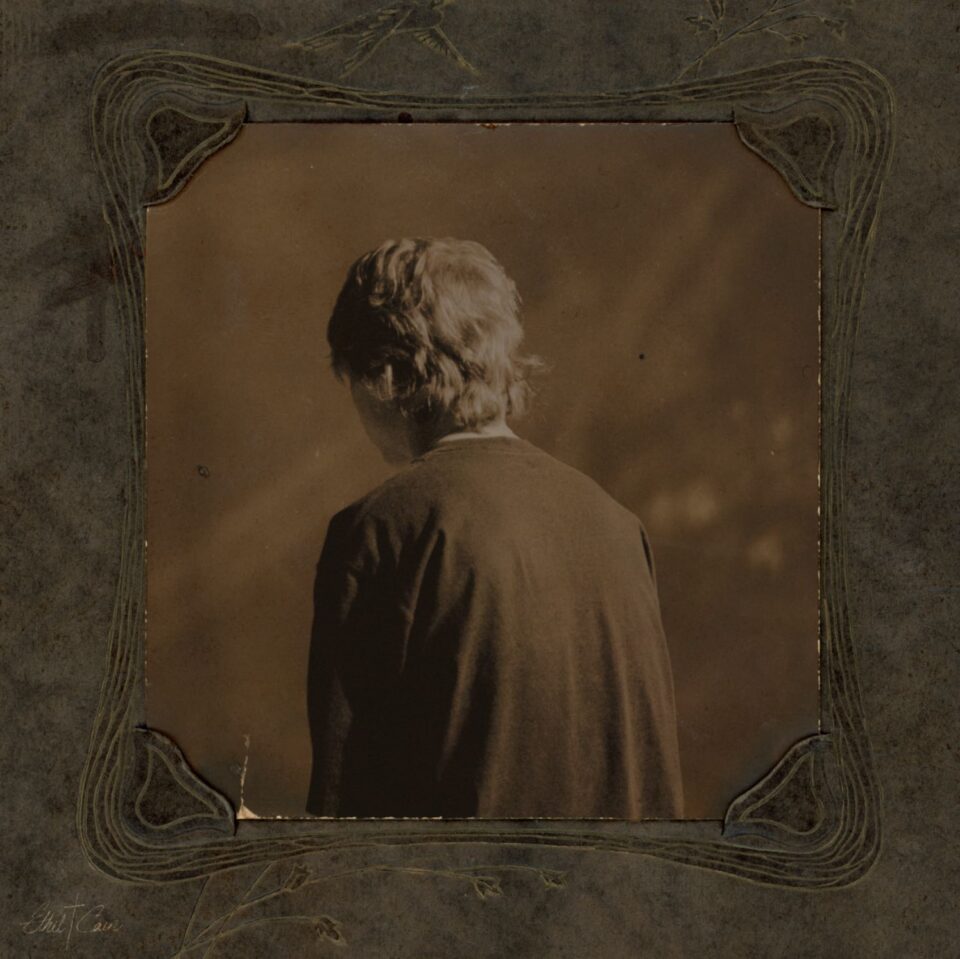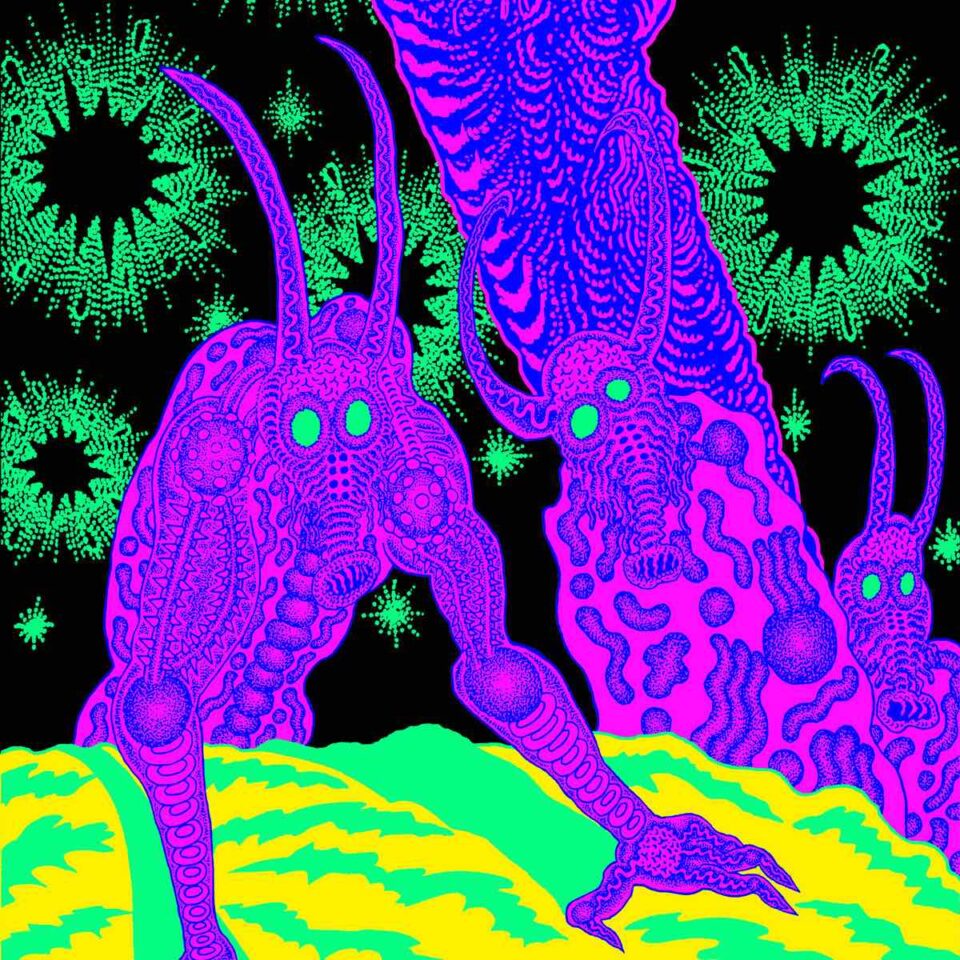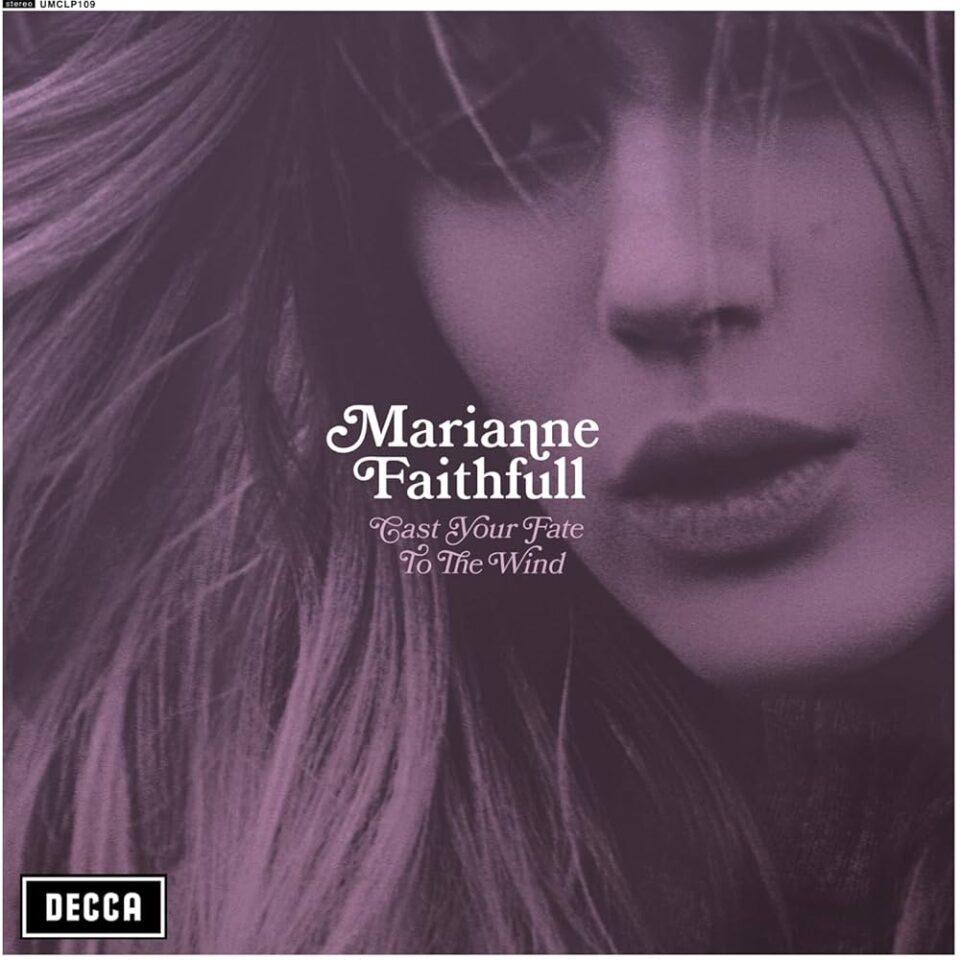Pale Waves are looking forward to calmer waters in 2021. Last year promised so much—the release of their sophomore album and an ensuing world tour, for one thing—but amid the COVID-19 pandemic, the UK indie rock band found their usually steady boat rocked by rough seas.
A near-deadly tour bus crash last March wasn’t the only life-altering event that they endured (drummer Ciára Doran, lead guitarist Hugo Silvani, and bassist Charlie Wood were lucky to escape with their lives). Self-identity struggles plagued Doran and lead singer Heather Baron-Gracie, and the usually tight-knit duo found themselves butting heads over their next album’s musical direction. Add in a life-threatening virus that completely changed how records are produced, and the physical and mental impact of numerous setbacks was taking their toll.
And yet, hope sprung eternal. The pandemic’s arrival allowed Doran, Silvani, and Wood to recover from their injuries. For Baron-Gracie, the global shutdown provided the opportunity for some long-overdue self reflection—a period that has not only led to Pale Waves’ frontwoman being more open about her sexuality and inner demons, but one that lit a creative fire.
Born out of that soul-searching is Who Am I?, Pale Waves’ second LP that is equal parts post-grunge and pop-rock, a middle finger to societal labels and a haven for anyone who feels lost or alone. Speaking to us over Zoom, Baron-Gracie revealed the unusual influences behind the album, discussed comparisons to The 1975, and shared why the foursome are closer than they’ve ever been.
How does it feel to finally be releasing Who Am I?
Amazing. I feel like I’ve worked so hard in terms of coming a long way as a songwriter and musician. I’ve honed my craft and branched out into different genres, and I knew that with this second album it had to be fucking great for us to take that long. It was a while, and it wasn’t ideal, but I’m really grateful that it’s being released.
Which artists inspired you lyrically or musically on this record?
I was influenced by a lot of alternative, strong, powerful female artists—Avril Lavigne and Courtney Love—and country music has become a big passion of mine. I was actually listening to a lot of Coldplay at the time, which is a funny one to throw in. Chris Martin’s songwriting is incredible, so maybe they had an influence.
What’s your favorite song on the record?
“Wish U Were Here.” Every time I listen to the album I go to that song right away, so it must be my favorite. I really love stripped-back music where it’s sometimes just an acoustic guitar and vocals. This track is quite bare and minimum; it doesn’t have a lot of elements to it. There’s five instruments and vocals, so we could set up right here and sound exactly the same as the record.
“If there’s a new thing, people love to compare and say ‘That’s what I’m comfortable with, so you’re a version of them,’ and it’s like, ‘Woah, I didn’t know other bands couldn’t write ’80s-inspired music and not be labelled The 1975.’ A lot of bands were doing it, so I don’t know why we got labeled so much.”
Was it a conscious decision to make Who Am I? more acoustic than its predecessor, or did it feel like a natural evolution for the band?
It was very natural. The first record was dominated by me and Ciára in terms of writing, but Ciára really dominated the music because that’s what they’re really good at. They love ’80s and synth-pop music, and I’m more alternative and stripped back. When I had more creative freedom on this one, it was naturally the sound because that’s the kind of music I genuinely love.
Some people will say that you’ve gone in a different direction, stylistically, due to your comparisons to The 1975. Was it frustrating to be labeled as a “lite” version of them, despite being very good friends with them?
Yeah, it was. If there’s a new thing, people love to compare and say “That’s what I’m comfortable with, so you’re a version of them,” and it’s like, “Woah, I didn’t know other bands couldn’t write ’80s-inspired music and not be labelled The 1975.” A lot of bands were doing it, so I don’t know why we got labeled so much. I’m really glad that I took the direction differently on this album, but it was just natural.
Who Am I? has a lot of societal commentary on it, such as dealing with materialism, self-identity, and validation. Did you feel any pressure writing about those topics, especially with the clichés that come with a sophomore album?
No, it was actually a lot easier. I think that period of trying to write a second record, and it just not coming to me, allowed me to sit down and take myself out of the routine. We were initially trying to write it on tour, and it wasn’t working. So when I stepped away from that and had time to gather my thoughts, think about me as a person and the things that I want to talk about in my art, it came to me. I just needed space and it all flowed out of me. I had a lot to say, and I still have more to say.
In the past you’ve spoken about the bus crash, working away from Ciára, and COVID’s effect on the album’s recording. You’re a tight-knit bunch, but what impact have those events had on your relationships with Ciára, Hugo, and Charlie?
The bus crash affected everyone’s mental health drastically for a good few months. But after speaking with them all I feel like they’ve spun it around and have taken this positive attitude from it, which I think is the best thing to do. Something really shit happened, but it was meant to show you what things in life really matter, which is what they’ve really taken from it, and I feel like they’ve become better versions of themselves. With Ciára, having that separation really aided us creatively. Ciára went off and started producing loads of new artists. They get such satisfaction from that, and I feel like it’s opened a lot of doors for Ciára, and they’re now striving to become the best producer they can be.
“Something really shit happened, but it was meant to show you what things in life really matter, which is what they’ve really taken from it, and I feel like they’ve become better versions of themselves.”
Has Who Am I? provided you with some catharsis after those events?
I think the crash is going to live with them forever, but they’re coming to terms with it and taking positives from it, like I said. Other than that, it feels like, as four individuals right now, we’re in the best place we’ve ever been. We’ve all matured drastically, which is weird as it’s happened at the same time.
Do you feel that Who Am I? lyrically encapsulates yours and the band’s growing maturity in that respect?
Definitely. I felt so young in terms of my maturity when writing the first album. I was just scribbling words down on paper and thought, “That sounds cool.” I wasn’t really depicting each word like I do on this album.
Have you personally noticed a greater push for inclusivity in the industry?
100 percent. As artists and a society, we’ve come a long way. We’ve become more open and accepting. Not everyone is going to be straight or identify with the gender given. I feel that there is more diversity, and on our recent video shoots I would say—which is a rarity—about 80 percent of the crew were women. I always try to encourage representation like that, so I’d hope that people can embrace the industry and be who they truly are.
That extends to social media, too, but they can be negative spaces to open up about your sexuality, body image, or gender identity.
The world can be really judgmental, but if you surround yourself with people who love you for who you truly are, you take strength from them. I really struggled with body image for a long time. I still have moments, but I’ve come a long way since then. You will get some people criticizing you because that’s who they are. People who say shit don’t matter, though, and are probably going through their own crisis. They project it as they can’t figure their own issues out.
With the pandemic still around, are you considering doing live shows remotely?
It’s a conversation we’ve had. It’s one of those things, though, isn’t it? The pandemic is evolving every day, and new restrictions come into play. We had a tour planned for the end of the year, but now it’s early next year. It’s difficult because you don’t know when to plan things, or if it’s going to be worth it. I’d like to do an online performance of the whole album as I’m thinking we won’t be able to play it live until 2022, but we’ll see.
What do you hope new and established fans will take from this album?
I hope that they take away understanding and comfort. I’d like to think of art as our way of comforting everyone, or giving them a sense of identity or representation. I just hope it makes people feel better about themselves or better about what they’re going through. Life is hard and sometimes you do need people to relate to and find comfort in. I hope that my struggles and views on society can align with other people, and that will make them feel better and less alone. FL
